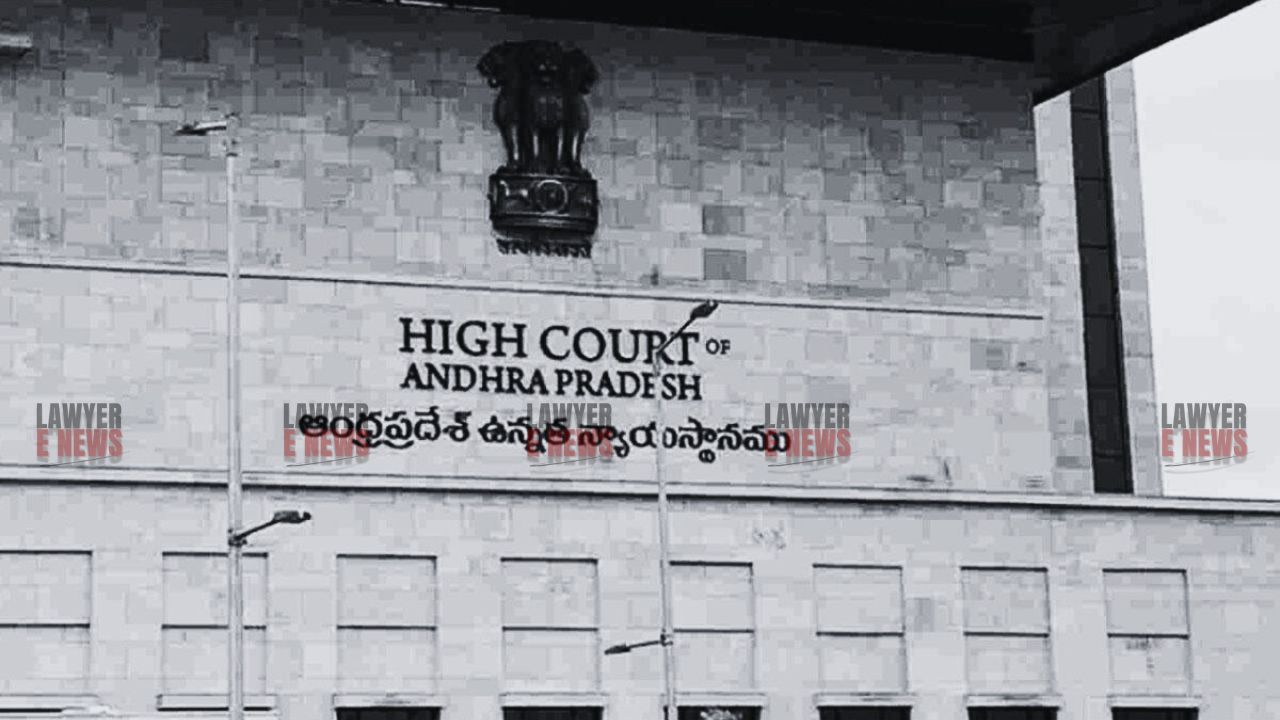-
by Admin
15 February 2026 5:01 PM



Andhra Pradesh High Court in Manchala Mouleswara Reddy and Another v. Dabbali Samanna and 13 Others dismissed a second appeal challenging the appellate court’s rejection of a suit for declaration of title and permanent injunction. The Court upheld the first appellate court’s conclusion that the plaintiffs failed to establish their title to the suit properties.
Declaration of Title – Burden of Proof on Plaintiff – Title Not Established – Appeal Dismissed
The plaintiffs based their title claim on a registered sale deed (Ex.A-1) purportedly executed by one K. David and others. The defendants contended that the suit properties belonged to the American Baptist Foreign Mission Church and were not transferable. The plaintiffs’ vendor, examined as P.W.3, admitted during cross-examination that the properties in question belonged to the church.
Justice Venuthurumalli Gopala Krishna Rao emphasized, “In a suit for declaration of title, the burden always lies on the plaintiff to make out and establish a clear case for granting such a declaration. The weaknesses, if any, of the case set up by the defendant would not be a ground to grant relief of declaration of title in favor of the plaintiff.”
The Court noted that Ex.A-1, the registered sale deed, did not establish the vendor’s title. Justice Rao observed, “The own admissions of the plaintiffs’ vendor go to show that himself and other vendors are not having any right to alienate the suit schedule property under Ex.A-1.” The evidence demonstrated that the properties belonged to the church and were recorded in the names of church authorities, including Reverend Stanton Dora, as reflected in documents such as Ex.B-9 and Ex.B-10.
Revenue Records – Entries Insufficient to Prove Title
The plaintiffs also relied on revenue records, including pattadar passbooks (Ex.A-2 and Ex.A-3) and adangals (Ex.A-55 to Ex.A-59), to support their title claim. However, the Court reiterated that entries in revenue records do not confer ownership rights.
Justice Rao cited the ruling in Ramanna v. Samba Murthy (AIR 1973 AP 31) and held, “The entries in revenue records, though relevant under Section 35 of the Evidence Act, do not constitute evidence of title. Since the plaintiffs are seeking the relief of declaration of title, they must have established their title de hors mutation entries.”
The Court also noted that Exs.A-2 and A-3, the pattadar passbooks, had been canceled by the Revenue Divisional Officer, further weakening the plaintiffs’ claim.
Permanent Injunction – Denial of Relief Consequential to Title
The plaintiffs sought a permanent injunction to restrain the defendants from interfering with their possession of the suit properties. However, the Court held that since the plaintiffs failed to prove their title, they were not entitled to the relief of injunction.
Justice Rao explained, “Since the plaintiffs are not entitled to the main relief of declaration of title, the question of granting consequential relief of permanent injunction does not arise.”
Second Appeal – Limited Scope – Findings Not Interfered With
The Court stressed the limited scope of interference under Section 100 of the Code of Civil Procedure, 1908, which allows intervention only when findings are perverse or based on inadmissible evidence.
Justice Rao stated, “The High Court can interfere under Section 100 CPC only if the judgment of the first appellate court is based on misinterpretation of documentary evidence, inadmissible evidence, or ignoring material evidence. The findings of the first appellate court in this case are neither perverse nor contrary to law.”
The appellate court’s conclusion that the plaintiffs failed to establish their title and possession was found to be legally sustainable.
The High Court dismissed the second appeal, affirming the judgment of the first appellate court and rejecting the plaintiffs’ claims for declaration of title and permanent injunction. The Court concluded, “The judgment and decree passed by the learned first appellate Judge is perfectly sustainable under law and requires no interference.”
The Court also directed that each party bear their own costs, and all pending applications in the case were closed.
Date of Decision: January 23, 2025
